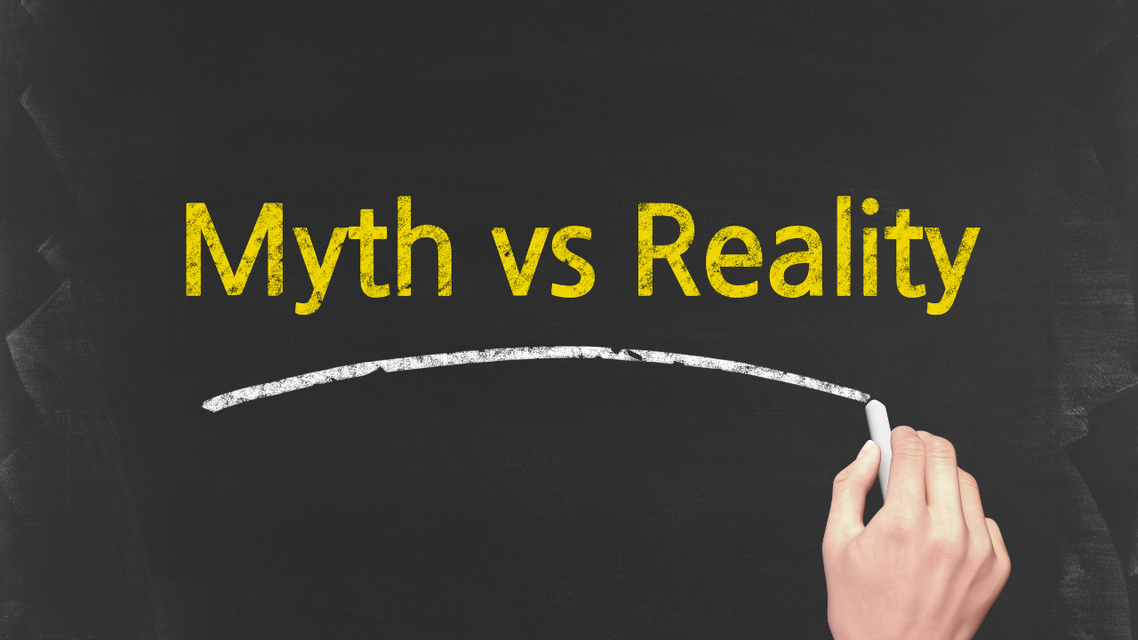Posted by Ralph Panttaja on Nov 3rd 2025
Debunking Common Health Myths
Debunking Health Myths: Insights from Raymond Francis' "The Great American Health Hoax"
Health myths and misconceptions are prevalent in today's society, often driven by misinformation and vested interests. In his book "The Great American Health Hoax," Raymond Francis challenges many of these myths, providing insights and evidence to help individuals make informed health decisions. This article explores some of the most common health myths and presents the truths that debunk them.
Common Health Myths and Misconceptions
Examples of Widely Believed Health Myths
Many people believe in health myths such as the necessity of low-fat diets, the redundancy of supplements, and the idea that all calories are equal. These misconceptions can lead to poor health choices and outcomes.
The Influence of Misinformation and Vested Interests
Health myths are often perpetuated by misinformation from unreliable sources and by vested interests such as food and pharmaceutical companies. Understanding the origins of these myths is essential for making informed health decisions.
Myth 1: Low-Fat Diets are the Healthiest
Explanation of the Myth
The belief that low-fat diets are inherently healthy has been widespread for decades, fueled by early nutritional guidelines and marketing.
The Role of Healthy Fats in the Diet
Healthy fats, such as those found in avocados, nuts, and olive oil, are essential for various bodily functions, including brain health and hormone production.
Scientific Evidence Debunking the Myth
Research has shown that low-fat diets are not necessarily healthier and that healthy fats are crucial for overall well-being. Studies indicate that a balanced intake of fats, including omega-3 and omega-6 fatty acids, supports better health outcomes.
Myth 2: Supplements are Unnecessary if You Eat a Balanced Diet
The Importance of Supplements for Optimal Health
While a balanced diet provides essential nutrients, modern agricultural practices and food processing can reduce the nutrient content of foods. Supplements help fill these nutritional gaps.
Factors that Reduce Nutrient Availability in Modern Diets
Soil depletion, long storage times, and food processing diminish the nutrient density of foods, making it challenging to obtain all necessary nutrients from diet alone.
Recommended Supplements from Beyond Health
Beyond Health offers high-quality supplements designed to support optimal health. Their products include essential vitamins, minerals, and antioxidants that complement a healthy diet.
Myth 3: All Calories are Equal
Understanding the Difference Between Types of Calories
Not all calories are created equal. The source of calories, whether from carbohydrates, proteins, or fats, affects how the body processes and uses them.
The Impact of Macronutrient Composition on Health
A diet's macronutrient composition influences metabolism, energy levels, and overall health. Quality and nutrient density of food are more important than simply counting calories.
Why Quality of Food Matters More Than Calorie Count
Focusing on nutrient-rich foods rather than calorie restriction ensures that the body receives essential nutrients for optimal function. Whole, unprocessed foods support better health than processed, calorie-dense options.
Myth 4: Prescription Drugs are the Best Solution for Chronic Diseases
The Role of Lifestyle Changes in Managing Chronic Diseases
Lifestyle changes, including diet, exercise, and stress management, play a crucial role in preventing and managing chronic diseases. These changes address the root causes rather than just symptoms.
Potential Risks and Side Effects of Prescription Drugs
Prescription drugs can have side effects and may not address the underlying causes of chronic diseases. Overreliance on medication can lead to dependency and additional health issues.
Natural Alternatives and Preventive Measures
Natural alternatives, such as dietary adjustments, physical activity, and supplements, can effectively manage chronic diseases. Preventive measures focus on maintaining overall health and preventing disease onset.
Myth 5: You Can’t Change Your Genetic Predisposition to Diseases
The Science of Epigenetics
Epigenetics is the study of how lifestyle and environmental factors influence gene expression. This field shows that genes are not destiny, and positive changes can alter genetic predispositions.
How Lifestyle and Environment Influence Gene Expression
Factors such as diet, stress, and toxin exposure can switch genes on or off. Healthy lifestyle choices can promote beneficial gene expression and reduce disease risk.
Practical Steps to Optimize Your Genetic Potential
Adopting a nutrient-rich diet, regular exercise, stress management, and reducing toxin exposure are practical steps to optimize genetic potential and promote long-term health.
Myth 6: Aging Inevitably Brings Illness
Separating Aging from Disease
Aging itself is not synonymous with illness. Many health issues attributed to aging are preventable with a healthy lifestyle.
Strategies for Healthy Aging
Strategies for healthy aging include maintaining a balanced diet, staying physically active, and engaging in mental stimulation. These practices can enhance quality of life and reduce the risk of age-related diseases.
Role of Diet, Exercise, and Mental Health in Aging Well
A holistic approach to aging emphasizes the importance of nutrition, physical activity, and mental well-being. A balanced diet, regular exercise, and mental health support are key to healthy aging.
Myth 7: More Exercise is Always Better
The Importance of Balanced Physical Activity
While exercise is essential for health, more is not always better. Over
 Fuel your life with the purest vitamins
Fuel your life with the purest vitamins
